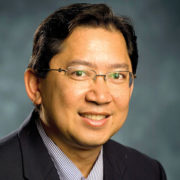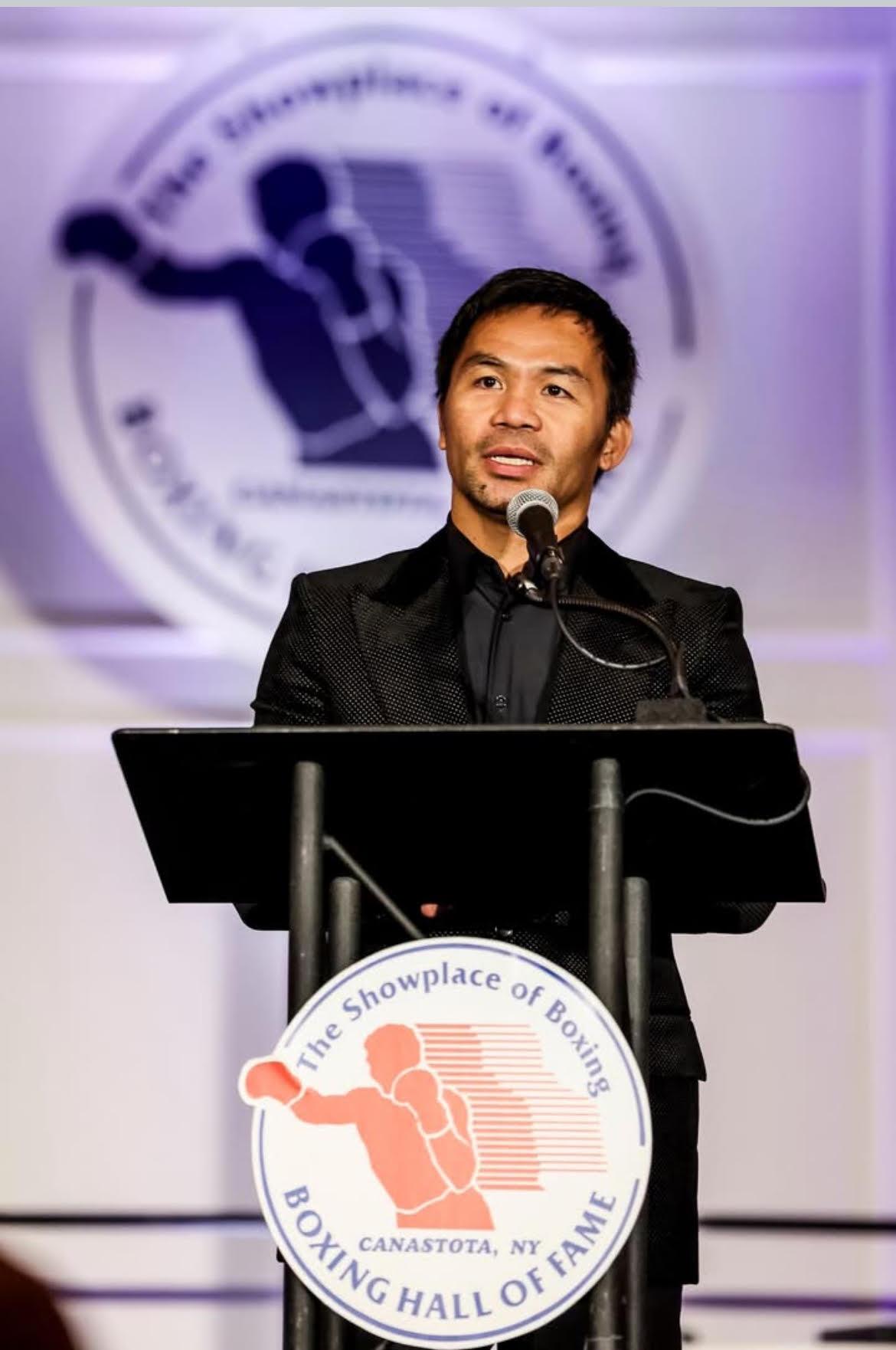HERE is a highly elite group of intelligent and gifted scientists, whose breakthrough achievements have made an impact on the lives of people — both at present, and for future generations. Filipino-American professor and scientist Dr. Rigoberto C. Advincula, Ph.D belongs to this select few.
Advincula is an internationally known world-class scientist, who is acknowledged by everyone in the profession for his contributions in the field of Polymers and Nanomaterials. The multi-awarded and distinguished Filipino scientist is also a world-class scholar and has a breadth of research experience, including studies on “polymer brushes,” electropolymerizable conjugated polymer networks, dendrimer macromolecules, biosurfaces, and hybrid Pnanomaterials.
An expert in Polymers and Nanotechnology
He is also considered one of the leading international experts in the: (1) synthesis of new functional nanomaterials capable of ordering at surfaces and interfaces, (2) application of surface-sensitive spectroscopic, microscopic, optical, and electrochemical analytical techniques to understand ordering phenomena, (3) devices and sensor applications of ultrathin films and particles, and (4) biotechnology and biomedical applications, says an article by Roderick Borong Pernites in Philippine Science Letters (PSL), a peer-reviewed, online journal that showcases science done in the Philippines and by Filipinos elsewhere.
In an exclusive interview with Asian Journal, “Gobet,” (as his family and friends fondly call him) explained his work in layman terms:
“We work on polymers, nanotechnology, and materials, which are useful for applications such as sensors, improved displays, solar cells, and bio implants. Polymers are easily identified by the term plastics. People think that plastic is bad and is associated with pollution. But if you think of how many modern conveniences you have that you can do without, a good number of them will be made of polymers. We invent basically new polymers with unusual properties that can be expensive to manufacture but of high value, a specialty polymer. That is why as thin films you only need very little of that. For electronic devices and sensors which use these materials, this can mean better performance and long life or usage. Nanotechnology even allow us to use fabrication methods near the atomic scale to get unusual properties from common materials. In the area of biomaterials, we assist doctors and medical device manufacturers to have safe and effective implant devices and drug delivery methods, In short, the type of research we do will impact the generation of new technologies that give convenience in society and long life to people,” he clarified.
Breakthroughs
In the same PSL article, Professor Advincula is credited with many breakthroughs:
(1) In 2005, he invented a novel approach for combining Electrochemistry (EC), Surface Plasmon Resonance Spectroscopy (SPS) and Atomic Force Microscopy (AFM) techniques in a single set-up, which provides for simultaneous and in situ optical, electrochemical, and surface morphological information of electrochemically deposited ultrathin polymer films. This breakthrough which is one of a kind in the world was published in the Review of Scientific Instruments of the American Institute of Physics.
(2) In 2006, he developed a sensor device for the pico-molar and real time detection of a nerve agent using an electrochemically cross-linked ultrathin dendrimer film. A nerve agent is classified as a weapon of mass destruction and has been used in chemical warfare and terrorism attacks. Therefore, the sensing of the nerve agent in very low levels is highly important. This work gained wide recognition and was later funded by the National Science Foundation, USA. The details of this work were published in the Journal of Advanced Functional Materials .
(3) In 2008, his innovative research work on nanopatterning which demonstrated current sensing AFM (CS AFM) onto a nanostructured layer-by-layer (LBL) ultrathin film of pendant carbazole-modified polyelectrolytes towards the formation of a complex nanopattern called “nano-car” was highlighted as the cover page in the American Chemical Society (ACS) Journal of Macromolecules.
(4) In 2010, Dr. Advincula again made high distinction in the scientific community when his work on electrochemical and electronanopatterning of carbazole peripheral dendrimers at the air-water interface was featured and made the cover page of the ACS Journal of Langmuir .
Education and career
Born and raised in the Philippines, Dr. Advincula studied high school at the Manila Science High School. He then pursued a bachelor’s degree in Chemistry at the University of the Philippines (UP) Diliman in 1987. For two years, he served as a university instructor at UP Institute of Chemistry. He then completed his PhD degree in at the University of Florida (UF) Gainesville in 1994.
A year after obtaining his Ph.D, he received a distinguished appointment as Alexander Von Humboldt research fellow at one of the world’s leading institutes in polymer science at the Max Planck Institute for Polymer Research in Germany under the supervision of world-renowned scientist Prof. Wolfgang Knoll.
In 1996, Advincula worked with Prof. Curt Frank, another eminent polymer scientist, as a postdoctoral research scholar at Stanford University. The following year, he worked at the University of Alabama at Birmingham (UAB) as an assistant professor in the Department of Chemistry and adjunct professor in the Department of Materials Engineering and Department of Biomedical Engineering.
In 1999, Advincula moved to the University of Houston (UH) Texas as an associate professor in chemistry. He received a joint appointment as an associate professor in the Department of Chemical and Biomolecular Engineering after two years.
Advincula’s masterful competence as a researcher and educator was recognized by the university where he became a full professor in 2007, and the Chair of the UH Research Council in 2008.
Besides his various positions at UH, Dr. Advincula has served as visiting professor and/or adjunct professor to various universities abroad including the following: Austrian Institute of Technology (AIT) in 2009, University of Paris, East Paris Institute of Chemistry and Materials Science – Institut de Chimie et des Matériaux Paris-Est in 2009, Max Planck Institute (MPI) for Polymer Research in 1999, 2004, and 2006, Waseda University in 2007, McGill University in 2006, University ofMontreal in 2006, National University of Singapore (NUS) Department of Chemistry in 2004 and 2006, Tokyo University of Agriculture and Technology (TUAT) Department of Organic and Polymer Materials in 2003, Venture Business Laboratory TUAT in 1997, University of the Philippines (UP) – Diliman Institute of Chemistry and Department of Chemical Engineering in 2008 and 2009, and University of Santo Tomas Department of Chemistry in 2009.
Proud to be Pinoy
Perhaps one of the reasons why he has been so blessed is that Advincula has always been giving back to his homeland. For over a decade, he has been visiting the Philippines several times a year, sharing his technical expertise as adjunct and visiting professor at leading universities in the Philippines and holding consultancy positions in major Philippine companies.
Proudly Filipino, Dr. Advincula shared with Asian Journal about overcoming challenges: He said, “In my profession, challenges are more related to getting through the professional training and the tenure process, in my case as a Professor. I think every Filipino given the right opportunity and environment only has to struggle with what is common in any profession. That is in the absence of any cultural, race, economic or immigrant adjustment factors, Filipinos can compete and thrive! We should as much as possible look at ourselves through the lens of being an achiever and hardworker, and never feel that we are entitled to anything or the government can meet all our needs. In many cases, even if there are any prejudices, we will overlook or overcome them if we are focused. There is a quiet confidence and accepting behavior that made me feel that I can overcome hardship. The personal reason is that I have a proper self-esteem that comes from my personal relationship with God.”
Achieving the American Dream
Talking about the way to achieve the American Dream, Advincula has a lot to say.
“The common advice is hard work and single mindedness in one’s purpose. It does work! One should always look at their job with pride and if possible threat it as a hobby. I also attribute being sincere to your fellowmen, close family ties, and personally, my relationship with God. I encourage Filipinos and Fil-Ams to go for the high value and in-demand jobs: science and engineering. These professions are not easily advocated in many schools in the US and even in the Philippines. The reason is that we sometimes have lack of early training or motivation in this direction, since we do not have many good role models or lack of advice in this direction. Science and engineering is the key to leadership in technology, modern society, high value added products, and high value skills. If you are in these professions, you can be very entepreneural and have many companies seek after your skills, work in national laboratories, or get into academia. Being a Professor, I am in the business of training the future generation and at the same time involved in the discovery process through research. I enjoy reporting something new, patenting, publishing, and giving a talk. Moreover, it gives me satisfaction knowing that I am making a difference in my student’s career and life,” he said.
(With a report from Roderick Borong Pernites)
(www.asianjournal.com)
(LA Weekend March 31-April 3, 2012 Sec A pg.10)






